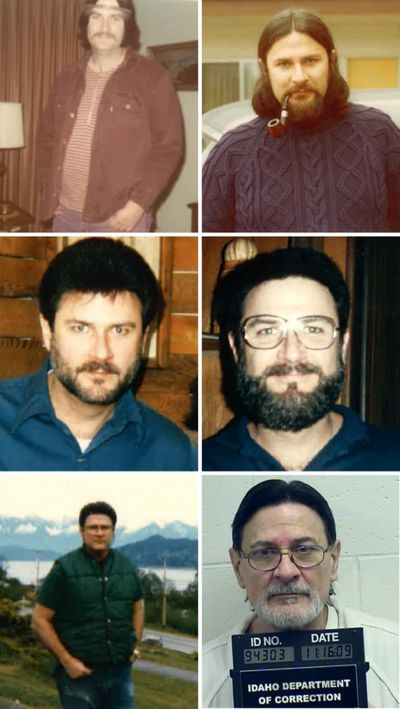Canadian police link killings of four young women in 1970s to North Idaho sex offender who died in prison

A serial sexual offender from Plummer, Idaho, who died while serving a rape sentence in an Idaho prison was behind four killings of young women in Alberta in the 1970s, Canadian police announced Friday.
The Royal Canadian Mounted Police in Alberta believe Gary Allen Srery was responsible for the killings of Eva Dvorak and Patricia McQueen, both 14, Melissa Rehorek, 20, and Barbara MacLean, 19, according to a news release from the law enforcement agency .
All four were found dead in a one-year span in the Calgary area.
“For over forty years, investigators did not give up in their pursuit to identify those responsible for these murders,” said Superintendent David Hall, officer in charge of the Alberta RCMP’s Serious Crimes branch. “Identifying the perpetrator does not bring Eva, Patsy, Melissa or Barbara back. It is our hope however, that the families are finally able to have some answers as to what happened to their loved ones all of those years ago.”
Dvorak and McQueen, who were friends, were last seen walking together the evening of Feb. 14, 1976, in downtown Calgary. They were found dead the next morning under the Happy Valley Overpass on Highway 1 west of Calgary.
Rehorek, who lived in downtown Calgary, was last seen by a roommate the evening of Sept. 15, 1976. Her body was also found the next morning in a ditch west of the city.
MacLean was with friends Feb. 25, 1977, at the Highlander Hotel bar and was last seen walking alone from the hotel in the early hours the next morning. A dog walker found her body in Calgary later that day, the release said.
A medical examiner ruled Rehorek and MacLean were strangled. The deaths of Dvorak and McQueen were undetermined at the time and were investigated as “sudden deaths,” police said.
Semen was discovered at all three crime scenes, but technology did not exist to develop a DNA profile at the time.
Police worked for decades to solve the case.
Police confirmed through DNA in 2003 the same suspect was linked to the deaths of Rehorek and MacLean. The suspect’s DNA was uploaded to a Canadian DNA database and went without a match for years.
Genetic genealogy was used in 2021 to identify the suspect in the killings of Rehorek and MacLean.
Srery’s connection to Canada was eventually established, and that he had a criminal record of committing violent acts against women.
During this time, crime scene evidence was resubmitted to the lab from the Dvorak and McQueen investigation.
The same DNA profile identified on both victims matched the DNA from the Rehorek and MacLean killings. Police believed that the same male was responsible for the deaths of all four victims.
Using the information provided through genetic genealogy, police began an investigation into Srery, who died of natural causes in prison in 2011.
He was serving an eight -years-to-life sentence for raping a woman in 2008 after driving her home from a Coeur d’Alene bar, according to previous S-R reporting.
With assistance from Interpol and Idaho State Police, Srery’s DNA matched the male DNA profile present on all four Calgary victims.
Srery was residing illegally in Canada at the time of the killings, police said. Srery had an extensive criminal record in the U.S. for sex offenses, including rape, kidnapping, burglary and sexual perversion.
He appeared to flee the U.S. sometime during 1974 after posting bail for a rape charge in California. He lived under aliases, including Willy Blackman and Rex Long, in 1976 and 1977 in Calgary. Srery lived a transient lifestyle and worked occasionally under the table as a cook. He was adept at frequently changing his appearance, place of residence and vehicles, police said.
He lived in Alberta and British Columbia from the 1970s to 2003 when he was deported.
Alberta police believe there may be more victims, including unsolved homicides, and asked the public to assist in further establishing Srery’s timeline in Canada. Those who recognize Srery or knew him by one of his aliases are asked to call the Alberta RCMP Historical Crime Unit at (780) 509-3306.
Those who believe Srery may be responsible for a crime in their jurisdiction should call their local law enforcement.